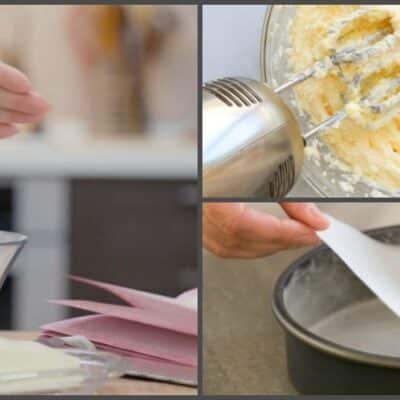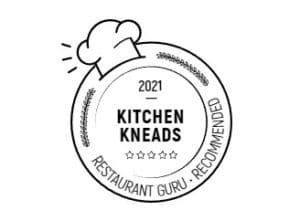Yes, I know. What you’re about to read is very basic, but fundamental to successful baking. Over the next several months, I’m going to be sharing with you my baking knowledge, my learning experiences, tips for beginning (and seasoned) bakers, and all the how’s and why’s of baking because my goal is to help you become successful in the kitchen. If you have a recipe fail, (which I have plenty of times) I want you to be able to diagnose the problem, try again, and have it turn our beautifully. I’ve tried recipes for the first time and noticed a problem with the recipe while making it. Because of my baking knowledge, I’ve been able to first, notice the problem, and second, correct it so whatever it was I was baking didn’t end up in a disaster. These are the kinds of things I want you to be able to do too.
So, let’s get right to it. The first thing I’m going to talk about is some tips for beginning bakers. They may seem too basic or you may say, “I already know that”, but not everybody knows everything. Even those who’ve been baking for years can still learn. I’ve been baking for over 20 years and I’m still learning.
Tip #1: Pre-read the Recipe
Read the recipe all the way through the first time you make it. This way, you know what you’re getting into, to put it simply. You’ll know what techniques are involved, what ingredients you’ll need, if there are any things you’ll need to prepare in advance, etc. This will also help you understand the recipe. Honestly, I’m guilty of not reading the recipe before I make it. I’ve since learned, though. There’s nothing worse than not understanding one of the directions while you have a mixture that’s time-sensitive and you have to spend time trying to figure out what you’re supposed to be doing.

Tip #2: Be Prepared with Ingredients and Tools
Before you begin baking, get out all the tools and ingredients you’ll be needing. This will help you make sure you have everything you need before you start baking. Trust me. I’ve had to get creative before because I didn’t check to make sure I had everything before I started baking a particular recipe.
 Image Source
Image Source
Tip #3: Prepare Pans First
This is so critical. Is there anything worse than whipping up a batch of beautiful banana bread and not being able to get it out of the pan? No. There’s not. If the recipe calls for a parchment-lined cookie sheet or a well-greased bread pan, do it. And do it first. This way, you won’t forget and you can smoothly transition from mixing up the recipe to getting it into the proper pan.
 Image Source
Image Source
Tip #4: Preheat Your Oven First
Yes, another thing to do first. Get that oven heating up first thing! If you don’t, your batter or dough or whatever it is will have to sit and wait for the oven to get up to temperature.
 Image Source
Image Source
Tip #5: Measure Properly
Unlike cooking, precision is critical in baking. Measure oil, milk, water, and other liquids in a liquid measuring cup. Use a dry measuring cup for flour, sugar, chocolate chips, nuts, etc. And by dry measuring cup, I don’t mean one that isn’t wet. I mean the ones that nest together and typically have only one measurement per measuring cup.
Bonus tip: Use a plunger measuring cup for sticky stuff like honey, molasses, corn syrup… It’s so much easier to get honey and such out of one of these because it scrapes the sides as you push it up, leaving you with only one flat surface to scrape off. So much better.
Tip #6: Sift
Sift dry ingredients before adding them to the rest of the ingredients. Yeah, it’s an extra step, but it’ll improve the overall texture of your baked goodies. Just do it. You’ll be happy you did.
Tip #7: Combine Ingredients Properly
There’s a reason the recipe directions are written the way they are. The person who developed the recipe most likely has some knowledge about how different ingredients react to each other. Combining the ingredients in the order the recipe says to will help you be successful. It sounds super obvious, but like I said before, not everybody knows everything.

Tip #8: Use a Timer
Burnt cookies aren’t awesome. Dry cake is also not awesome. Don’t count on yourself remembering how long something’s been in the oven. Distractions happen too. Let the timer remind you that you have zucchini bread in the oven and that it’s time to take it out. Of course, also use good judgement. Just because the timer says it’s done, doesn’t mean it’s done. There are other methods for telling if something is done or overdone, which I’ll cover in another post, but set a timer for the baking time stated in the recipe and you’ll have a good idea of when it’s done.
I hope you find these tips helpful. I’ll be covering some of them in more detail in future posts, so be on the lookout for those.
Wishing you the best of success in your kitchen!













